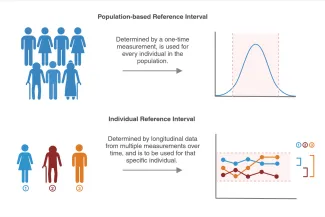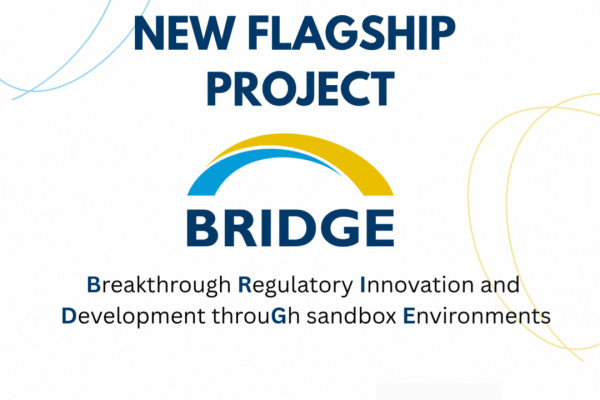
PRIBE
Clinicians rely on reference intervals (RIs) to interpret test results, but traditional RIs don’t account for changes over time, making them less suitable for modern omics and preventive medicine. The PRIBE project aims to improve this by using subject-specific longitudinal information to develop individual RIs (IRIs). In collaboration with Hasselt University, we have created a framework that allows personalised interpretation of clinical biomarkers, enhancing preventive healthcare. Our approach includes both methodological advancements and software solutions, with ongoing expansion into quantitative proteomics. This innovation supports early disease detection and provides more precise medical insights.
Reference intervals (RIs) are essential in clinical practice, providing population-based benchmarks for interpreting test results. Traditional RIs define the expected range of values in a healthy population and are widely used in diagnostics and treatment decisions. However, they don’t account for individual biological variability or incorporate longitudinal data, limiting their applicability in modern omics research and preventive medicine.
Each person has a unique physiological range for clinical biomarkers, and integrating personal longitudinal data allows for a more precise and tailored interpretation of test results. The PRIBE project addresses this limitation by developing individual reference intervals (IRIs), which consider personal biological traits over time, leading to better clinical decision-making and preventive healthcare.
In collaboration with Hasselt University, we have created a methodological framework that uses quantile models combined with penalised parameter estimation methods to calculate IRIs. This approach shifts the calculation of IRIs from an estimation problem to a prediction problem, enhancing their accuracy and reliability. Additionally, we extended the concept to identify personal ‘important changes’ in successive test results by computing individual reference change values (I-RCV), allowing for a more dynamic assessment of health status.
To validate our approach, we conducted benchmarking studies using real-life clinical data alongside simulation studies covering various scenarios. Our methodology is being expanded to high-dimensional omics data, including quantitative proteomics, ensuring its applicability in advanced biomedical research. Both methodological and software solutions are available, providing researchers and clinicians with the necessary tools to integrate IRIs and I-RCVs into practice. This innovation supports a shift toward more personalised, predictive, and preventive healthcare.

Figure created with BioRender.com
VITO's role in PRIBE
PRIBE is part of VITO's flagship I AM My Health project. It uses data from the I AM Frontier cohort, a group of 30 healthy volunteers studied within IAM My Health, to benchmark and validate proposed methods. The extensive clinical and omics data collected from this cohort provide valuable insights into individual risk profiles and the potential of molecular-level data for early disease detection and prevention.
VITO’s expertise in systems biology and bioinformatics, combined with Hasselt University’s biostatistics proficiency, fosters a strong collaboration to develop data-driven, personalised solutions for optimising health monitoring and early disease prevention.
Project partners
More info
Would you like to know more about PRIBE? Feel free to contact Gökhan Ertaylan.















